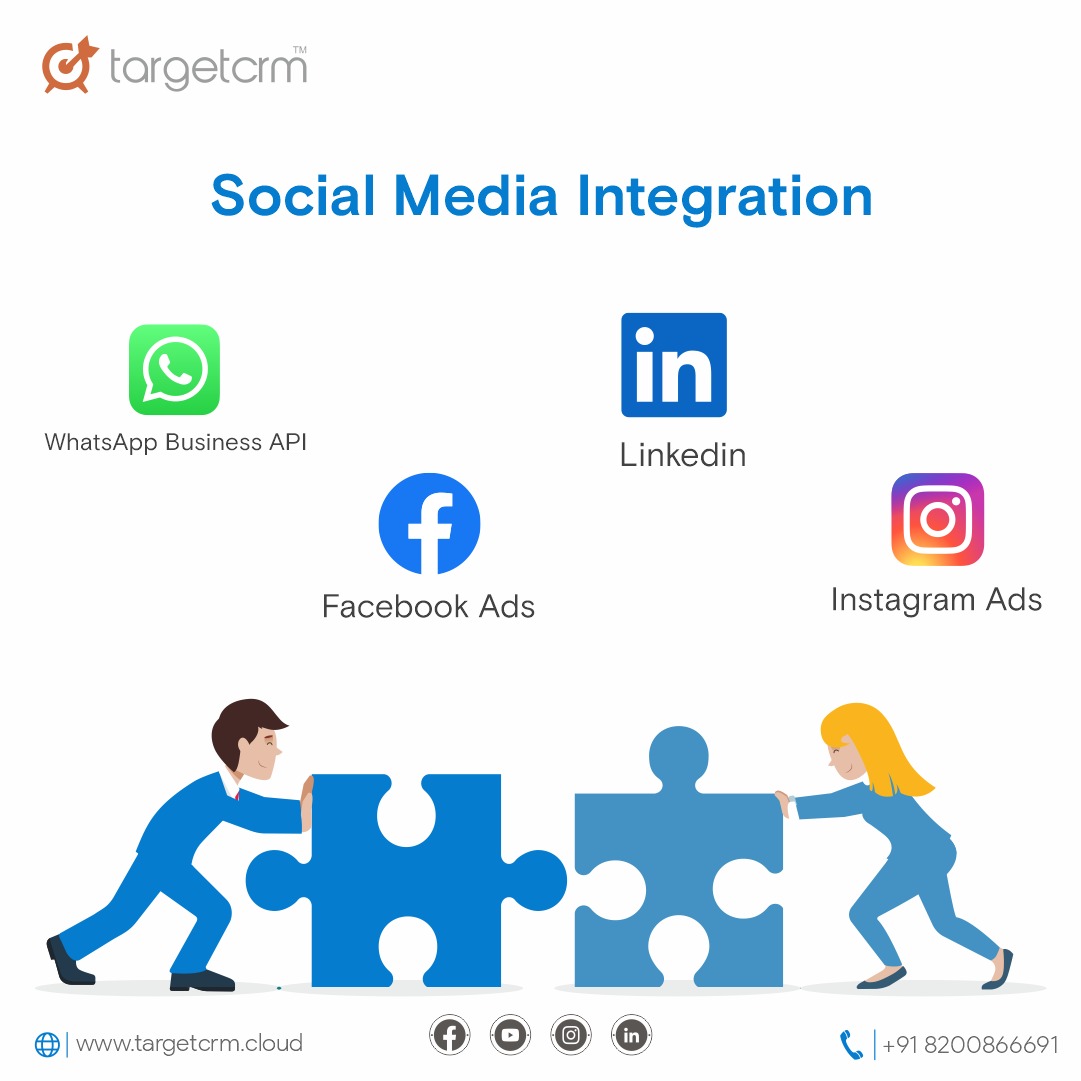Social media has become an integral part of any business’s marketing strategy. With the proliferation of platforms like Facebook, Twitter, Instagram, and LinkedIn, businesses have the opportunity to reach their target audience in a more personalized and effective way. However, managing multiple social media accounts can be time-consuming and overwhelming. That’s where social media management tools come in.
One such tool is TargetCRM, a customer relationship management platform that helps businesses manage their customer interactions and data. In this blog, we will explore how integrating social media management with TargetCRM can streamline your marketing efforts and help you achieve better results.
What is TargetCRM?
TargetCRM is a cloud-based CRM platform that helps businesses manage their customer relationships and interactions. It offers a range of features that allow businesses to track and manage their customer data, sales leads, and marketing campaigns.
Some of the key features of TargetCRM include:
Lead management: TargetCRM allows businesses to capture, track, and nurture leads through the sales process.
Marketing automation: TargetCRM’s marketing automation features allow businesses to create and execute personalized marketing campaigns based on customer behaviour and interests.
Customer service: TargetCRM’s customer service tools help businesses manage and resolve customer queries and complaints.
Analytics and reporting: TargetCRM offers a range of analytics and reporting tools to help businesses track their performance and measure the success of their marketing efforts.
How does social media integration with TargetCRM work?
Integrating social media management with TargetCRM allows businesses to manage their social media accounts and customer interactions in one place. Here’s how it works:
Connect your social media accounts: The first step in integrating social media with TargetCRM is to connect your business’s social media accounts to the platform. This can be done by linking your accounts through the TargetCRM dashboard.
Monitor social media activity: Once your accounts are connected, you can monitor social media activity from within TargetCRM. This includes tracking mentions of your brand, comments, and messages from customers.
Respond to social media interactions: TargetCRM allows you to respond to social media interactions directly from the platform. This includes responding to comments, messages, and reviews from customers.
Create and schedule social media content: TargetCRM also allows you to create and schedule social media content from within the platform. This includes creating posts, images, and videos, and scheduling them to be published at a later date.
Analyze social media performance: TargetCRM’s analytics and reporting tools allow you to track the performance of your social media campaigns and measure their success. This includes tracking engagement metrics such as likes, comments, and shares, as well as analyzing the reach and impact of your campaigns.
Benefits of integrating social media with TargetCRM
Integrating social media with TargetCRM offers a range of benefits for businesses, including:
Streamlined workflows: By managing social media and customer interactions in one place, businesses can streamline their workflows and save time.
Improved customer service: TargetCRM’s customer service tools allow businesses to track and resolve customer queries and complaints in a timely manner, improving the overall customer experience.
Enhanced marketing efforts: TargetCRM’s marketing automation features allow businesses to create personalized marketing campaigns based on customer behaviour and interests, resulting in more effective marketing efforts.
Better analytics and reporting: TargetCRM’s analytics and reporting tools provide businesses with insights into their social media performance, helping them to track the success of their campaigns
Conclusion:
Overall, integrating social media management with TargetCRM can help businesses to streamline their marketing efforts, improve customer relationships, and gain a deeper understanding of their target audience.
